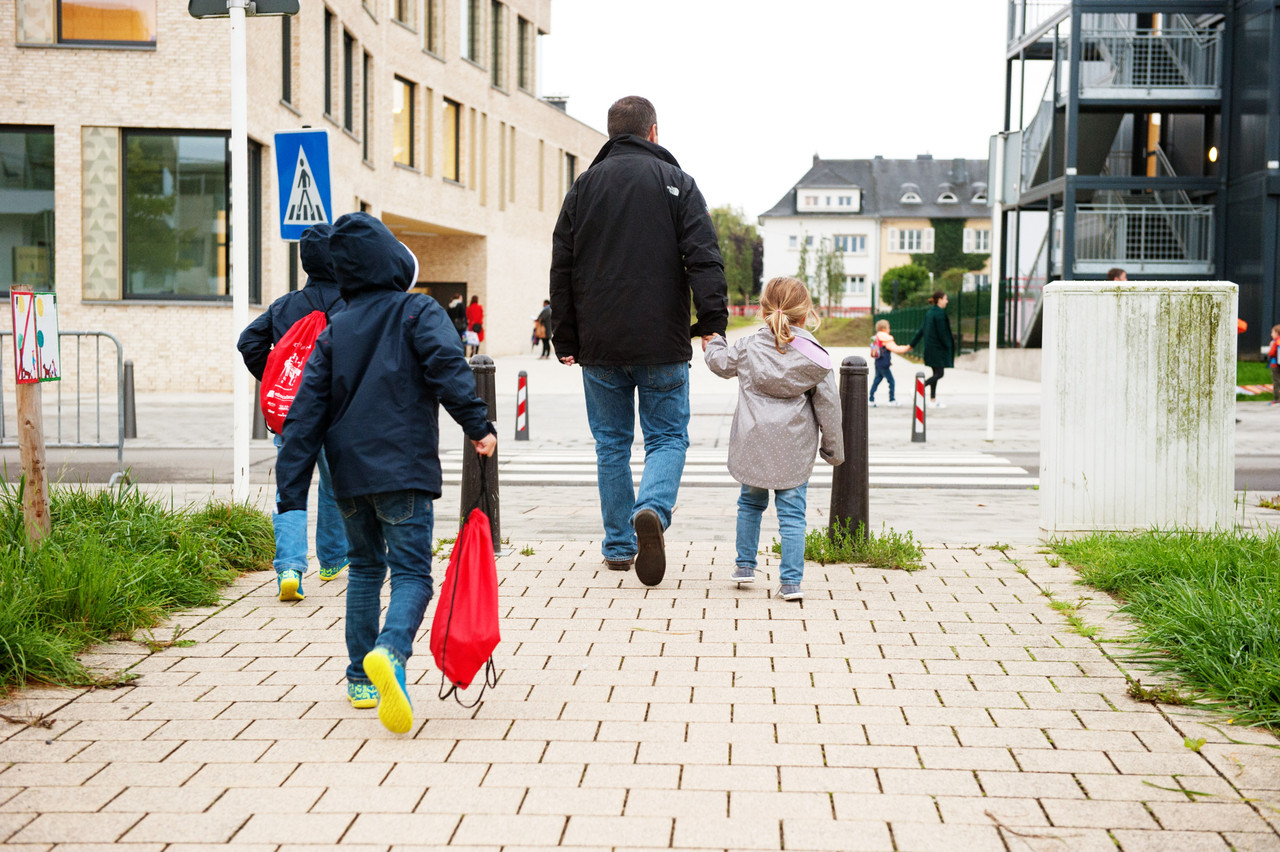Education minister (DP) on Tuesday presented the “Service de l’integration et de l’accueil scolaires” (SIA), the school integration and welcome service, a one-stop shop for families arriving in Luxembourg to get clued-up about the local school system.
Already before moving to Luxembourg, parents will be able to contact the SIA and request an appointment. The service will deliver information on the available schooling options but also collect details on the pupil’s academic progress so far.
In a next step, tests and interviews will determine a recommendation by the SIA, which will transfer its file to the school eventually chosen and establish a welcome protocol for the student, who will be accompanied for a period of two years to ensure their progress.
The service also includes the translation of important documents for families not speaking the local languages. Cultural mediators will also be available to help ensure a smooth transition between cultures and languages for the pupil.
With the aim to help better integrate the student, teachers and peers will also receive information about the new joiner, where they are from and what languages they speak.
Draft law pending
A draft law to introduce the welcome and integration service is pending in parliament. If voted before the summer break, it could come into force for the start of the 2023-2024 school year, the education ministry said.
The SIA will work with pupils and students at primary and secondary school level.
If the draft law isn’t voted before the end of July, this will mean a delay until after the October parliamentary election, after which the Chamber of Deputies will re-constitute.
The European Commission in its spring semester package--a set of policy recommendations issued to all member states--urged Luxembourg to “improve the performance of the school education system and promote equal opportunities for all students, notably by adapting teaching to the needs to disadvantages students and those from various linguistic backgrounds.”
While Luxembourgish is spoken in pre-school, alphabetisation in primary school is taught in German, with French taking a prominent role in secondary school.
Luxembourg below average
More than half of 15-year-olds in Luxembourg had an immigrant background in 2018, when the OECD carried out its last Pisa student assessment survey, the largest share of any participating country.
Students scored 470 points in reading on average in the 2018 survey, below OECD average (487 points) and below the average performance of almost all European countries. Performance in mathematics and science also ranked below the OECD average.
“The link between socio-economic status and performance in Pisa is stronger in Luxembourg than in any other Pisa-participating country,” the survey concluded. The document was based on the assessment of 5,478 students aged 15, accounting for 85% of the total population of that age.
Meisch following the release of the survey results said Luxembourg would take part in Pisa only every six years in the future, down from every three, arguing the survey does not sufficiently take into account the multilingual specificities of the grand duchy’s education system.
Public European schools
To respond to the need for education in languages other than the country’s official tongues, the government in 2016 opened the first public European school in Differdange in 2016. It has since grown this number to six schools, including in Clervaux, Junglinster, Mersch and Mondorf-les-Bains.
The schools follow the system of having different language sections, as practiced in the schools affiliated with the European institutions. But unlike the European School in Mamer and Kirchberg, they are free of charge and open to all pupils in Luxembourg.
The system allows students to follow core classes in German, English or French. Some of the schools also offer language sections in Portuguese, Spanish and Italian.
The public European schools are run in addition to other public schools hosting English teaching, GCSE, A-level and International Baccalaureate options, as well as Luxembourg’s private international schools, which will not form part of the government’s new welcome and integration service.
